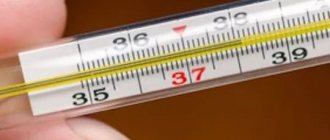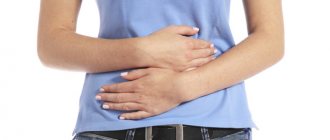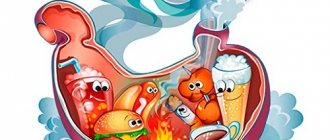causes of sudden chills, photos from social networks It suddenly becomes cold and begins to shake - one of the symptoms of chills.
In medicine, sudden chills are interpreted as a clinical manifestation of thermogenesis , accompanied by acute transient muscle tremors. There is a feeling of chilliness, sweat ceases to be released, and the skin turns pale. Spasms of the walls of blood vessels occur inside the body, due to which blood stops being transported at the usual speed - the person freezes.
But chills do not always appear due to hypothermia or low temperatures. It can be produced for no apparent reason. At the same time, the person will not feel illness, inflammation and loss of appetite. Most likely, weakness and loss of strength will appear. Such symptoms may indicate a disruption of the autonomic system. It is she who controls the functioning of all organs, as well as the muscular and nervous systems.
Today we will voice answers to questions that will help clarify the symptoms and causes of sudden chills. You will learn:
- Why does chills occur (causes, symptoms)?
- Why does sudden chills occur and what happens in the body?
- What to do if it's cold and shaking?
- Who should I contact with this problem?
- Prevention of sudden severe chills?
If you have symptoms of chills , this article will help you find out their causes. Take immediate and necessary action. But after that, you should contact a specialist. With its help, you can create conditions for the prevention of diseases caused by chills.
What it is
Chills are a condition in which a person feels shaking inside the body. He cannot warm up; even warm clothes, shoes, and hot tea do not help. Accompanied by chills, malaise, loss of strength. The person may feel very sleepy. He either falls asleep immediately or cannot fall asleep for a long time.
It is a mistake to think that chills are a sign only of colds. It also occurs in infectious diseases, hypothermia, disruption of the endocrine system, stress, VSD, pressure surges, and other conditions.
Nausea is discomfort in the epigastric region, which is accompanied by increased salivation and a state of lightheadedness. Often with this condition, the complexion changes, the person loses the ability to navigate well in space, and wants to sit down. Nausea is often accompanied by dizziness, a desire to vomit, and stomach pain.
In most cases, nausea is associated with diseases of the digestive system and bad eating habits. It can be one-time, for example, it occurs after overeating, alcohol abuse, or eating poor-quality food. Periodic and constant nausea are symptoms of serious health problems.
Chills and nausea as signs of poisoning
Nausea, vomiting and chills are symptoms of food poisoning in more than half of the cases. After eating low-quality, spoiled food, it can take 2–6 hours. Sometimes the first symptoms of poisoning appear within a day.
The main ones, in addition to nausea and chills, are:
- diarrhea;
- abdominal pain;
- weakness, loss of strength;
- aversion to foods;
- dizziness.
Based on the symptoms, you can determine the type of poisoning; the table below shows the main ones:
| Bacterial | Nausea, diarrhea, vomiting within an hour after eating contaminated food |
| Viral | Same symptoms, only 12–48 hours after eating contaminated food |
| Chemical | Nausea, chills, vomiting, diarrhea, fever, sweating, pressure surges - symptoms appear within half an hour |
Pregnancy or menstrual cycle
In women, these symptoms appear during periods of pregnancy and blood loss. There is no underlying disease. No treatment required. The reasons are hormonal changes. Nausea at certain smells. Body temperature can range from normal to 37 degrees. Get enough rest and take a walk in the fresh air.
During pregnancy, drowsiness accompanies the listed symptoms. Some types of acidic foods can help relieve nausea. The problem lasts the first trimester. With blood loss, the discomfort lasts up to three days. With the cessation of menstrual flow, the symptoms disappear. Women celebrate their appearance a few days before the start of menstruation. The use of drugs would be inappropriate.
First aid
When poisoning is detected in the early stages, it is possible to quickly get rid of unpleasant symptoms. First of all, it is necessary to rinse the stomach; for this, use a solution of potassium permanganate. It is recommended for adults to dissolve several crystals in 0.5–1 liters of water, for children - 250 ml.
You need to rinse your stomach many times until only clean water comes out when you vomit. This simple method helps get rid of toxins that have entered the body with food, but have not yet had time to be absorbed into the blood and internal organs. After vomiting, the nausea usually goes away, but the chills remain. Therefore, it is better for the patient to lie down, preferably sleep, wrapped in a warm blanket.
In addition to gastric lavage, it is recommended to take enterosorbents at home. They will speed up the removal of toxins from the body. If, despite the measures taken, a person continues to shiver, feel nauseous, or the condition worsens, it is necessary to immediately go to the hospital with poisoning.
A popular enterosorbent is activated carbon; you can also use drugs such as Smecta, Polysorb, and their analogues.
Headache and fever during pregnancy
In a pregnant woman, the causes of headache and fever can be the same as in any adult. However, fever and headache during pregnancy can be caused by a special state of the body during pregnancy.
For example, a slight low-grade fever is observed in the first weeks of pregnancy, and this is considered normal. This increase is caused by the effect of progesterone, a hormone secreted by the placenta.
Progesterone acts on the thermoregulatory center of the brain (hypothallamus). For many women, thermometer readings remain elevated for several months of pregnancy.
If the readings exceed 38 C, consult a doctor immediately. This can be an infection, and many of them are very dangerous for the developing baby.
A woman's headache may be caused by toxicosis of pregnancy (preeclampsia). This is a complication of a normal pregnancy.
In most women, gestosis manifests itself in a mild form and does not threaten the health of the fetus and mother. Very often, its symptom is increased blood pressure - hypertension. It is fluctuations in blood pressure that can cause vasospasm, and ultimately a throbbing or pressing headache.
It is important to remember that pregnant women are contraindicated in painkillers and antipyretics such as aspirin, analgin and triptan (as well as all medications based on them). The active substances of such drugs can cause fetal development disorders, which has been proven by numerous studies.
The most sensitive periods of pregnancy are the first trimester and the last couple of weeks of the ninth month. At this time, the best solution is to stop taking any medications.
If the headache is severe, you can take paracetamol or ibuprofen, after reading the instructions and choosing the right dosage. It is recommended to consult a doctor if such symptoms bother you frequently.
Poisoning – when it is life-threatening
If gastric lavage and taking enterosorbents do not bring results, you should go to the hospital immediately. Such seemingly harmless signs as chills, nausea, and vomiting can develop into a threat to a person’s life. Sometimes the diseases that provoke these symptoms can be deadly, and dehydration itself, which is not combated, disrupts the water-salt balance.
You can suspect the presence of serious pathologies based on the following signs:
- stool more than 10 times a day;
- vomiting when trying to eat something or completely for no reason;
- blood impurities in vomit;
- blood clots in stool;
- intense pain of a girdle nature;
- a strong odor when vomiting, such as rotten eggs.
The appearance of one or more of these symptoms is a reason to urgently consult a doctor. Before his arrival, you must refuse food, lie warm, and, if possible, drink plenty of water.
Prevention of poisoning
By following preventive measures, you can avoid all the unpleasant symptoms of poisoning. They are applicable for children and adults. The main recommendations are:
Why does my stomach hurt and feel nauseous?
- do not eat undercooked meat;
- cook the eggs for at least 5–7 minutes;
- store meat, fish, eggs only in the refrigerator;
- wash your hands before eating or cooking;
- have separate boards and knives for each food group: meat, fish, vegetables;
- wash vegetables and fruits thoroughly, even from your own garden;
- do not consume expired products, even for a short period of time;
- buy them only in trusted places;
- do not eat mushrooms if you are not sure of their quality;
- wash your hands after touching pets.
Treatment
It is strictly forbidden to prescribe medications on your own; to do this, you should definitely consult a doctor. Therapy is carried out in a hospital setting, and modern equipment is used if necessary.
In case of poisoning, intravenous medications are used to neutralize the effects of toxins. However, before starting treatment for chills, the doctor must determine the cause of the illness. To do this, a comprehensive examination of the body is carried out, and then treatment methods are selected.
Medications
If your head hurts severely, and emergency measures are not available to you for some reason, it is permissible to take a painkiller tablet.
- If the symptoms are caused by colds, the doctor prescribes antipyretic and painkillers.
- If the pain is accompanied by aches in the joints and high fever, it is recommended to take a medicine based on paracetamol.
- To combat a runny nose and nasal congestion, drops are used.
- If the temperature rises excessively, you can take a drug based on acetylsalicylic acid or propionic acid.
- Women during menopause can be prescribed hormonal medications of origin that eliminate chills.
- Infectious bacterial lesions can be treated with antibiotics.
- If you suspect meningitis, it is strictly forbidden to engage in independent treatment. Consult your doctor.
Folk remedies
To relieve various unpleasant sensations, potions that have been used by our grandmothers for centuries and are still valued by experienced herbalists will help.
- Severe migraine and fever are treated with vinegar. To do this, you need to take a cloth and moisten it in a solution consisting of water, olive oil, vinegar, and then apply it to the frontal part of the head.
- If you have pulsating and pressing pain, a fresh cabbage leaf will help. It should be applied to places of spasms.
- Beetroot juice, which is recommended for use as lotions, has a similar effect.
- To avoid dehydration and to treat chills, you should drink decoctions of medicinal plants.
- Chamomile, mint, sage, lemon balm are used.
- If you have signs of a cold, you should treat yourself with ginger tea, raspberries, honey, and lemon.
- Rubbing will help overcome not only chills, but also cure conditions such as headaches. To do this, wipe yourself with vinegar or vodka in the places where the blood vessels pass.
Now let’s move on to general recommendations regarding treatment for chills and headaches.
Other reasons
There are other causes of nausea and chills, besides poisoning, although they are less common, it is important to recognize them in time. Sometimes they indicate the presence of serious diseases. Doctors divide them into two main groups: with elevated body temperature and without fever.
With elevated temperature
If a temperature of 37 degrees or higher appears with nausea and chills, the possible causes may be the diseases listed in the table below.
| Disease | Additional symptoms |
| ARVI | Sore throat, runny nose, cough, lethargy |
| Stroke | Speech impairment, loss of coordination in space |
| Gastritis, ulcers, other stomach diseases | Diarrhea, abdominal pain, flatulence, loss of appetite |
| Acute appendicitis | Sharp pain in the lower right abdomen |
| Intestinal infection | Vomiting, abdominal pain, stool disorders |
If you suspect one of these diseases, you should immediately go to the hospital. The diseases listed in the table are only some of the most common, therefore, if a person observes any other symptoms that do not mean poisoning, a diagnosis in a clinic is required, tests to determine the disease.
Causes of trembling with high blood pressure
Our life consists of white and black stripes. For some, it’s not life, but a real zebra, while for others, the white stripes are long, even, and only occasionally interrupted by a thin black dotted line. And if everyone has their own white, then the symptoms of blackness are the same for everyone. Troubles at work, at home or on the personal front, bad mood, insomnia, anxiety, irritability. The man is broken. And the name of this disease is vegetative-vascular dystonia.
The whole body shakes and feels nauseous. If dizziness, nausea, drowsiness and weakness are combined with numbness in the limbs and tingling in these parts of the body.
Psychogenic causes
Psychologically unstable conditions are found in an increasing number of young people. Panic attacks, stress, shock - all this affects not only the emotional state of a person, but also the physical one. Nausea and chills occur against the background of symptoms such as:
- increased heart rate;
- flushed face;
- feeling of heat;
- weakness;
- sweating;
- breathing problems, shortness of breath;
- lethargy, feeling of “woolly legs”.
Panic attacks usually appear at a young age. Many people simply do not attach importance to this condition, so they ignore the first symptoms. Over time, the frequency and duration of attacks increase. On average, a panic attack lasts 30–60 minutes.
Panic attacks are often accompanied by intense fear; some are frightened by the thought of sudden death; women are especially susceptible to this condition.
Sometimes panic attacks first occur in older people. Many people are frightened by the new condition, confusing it with a heart attack, so they immediately seek help. To get rid of psychological problems that provoke deterioration in physical condition, long-term therapy and work with specialists are necessary.
Nausea and vomiting are common symptoms of food poisoning, other diseases, and psychogenic problems. Before starting treatment, it is necessary to determine why they occurred. Only by eliminating the root cause can you get rid of nausea and chills. An accurate diagnosis can be made by the doctor who performed the diagnosis. Nausea and chills in children require especially careful attention.
Physiological causes of body chills without fever in women
Trembling appears in many pathological conditions, when a person panics and fears for his life.
Heart attack, hypertensive crisis, acute abdomen, food poisoning - conditions in which the patient becomes covered with goose bumps. There are many reasons for sudden chilliness. Why does a person start to freeze? When it gets cold and scary, vasospasm is sure to occur. When food intoxication occurs, body temperature rises, loss of fluid and electrolytes occurs, and the patient feels chills. Fever appears due to the proliferation of bacteria in the stomach, intestines, and the release of their metabolic products, which are pyrogenic substances—“fever-generating substances.”
Chills are not the main pathognomonic symptom of poisoning. It must be considered in conjunction with other manifestations (abdominal pain, diarrhea, vomiting) in order to make the correct diagnosis and begin appropriate treatment.
In children, such symptoms may be caused not only by digestive disorders. Common factors include:
- Increased intracranial pressure. In this case, the child also has a headache.
- Binge eating. If you consume too much food, your baby may feel nauseous, and there will be a feeling of fullness and pain in the stomach.
- Weakness of the vestibular apparatus. Children can quite often vomit in transport. Therefore, they should not be given food or drink before the trip.
- Stressful situations. Nausea, diarrhea and weakness in a child can appear with excitement and high nervous tension. In such a situation, it is important to calm the baby down and offer him to do breathing exercises.
- Allergic reactions. If nausea and diarrhea occur in a child without fever, food and drug allergies can be suspected. In such a situation, you need to consult an allergist.
1 Headaches in combination with nausea or severe nausea are most often observed with nervous disorders. Particularly severe cases are accompanied by vomiting. A similar condition often occurs in people who have suffered traumatic brain injuries, bruises or swelling of the brain.
2 Strong mechanical impact on the cranium, resulting in its damage, serves as the basis for an increase in intracranial pressure. The consequence of this is headache, dizziness and vomiting. A person experiences more frequent states of stress or severe nervous tension, fatigue and weakness become regular, and fatigue increases. Deterioration in health can also be caused by serious illnesses.
1 Migraine. This disease serves as a harbinger of various disorders of the nervous system. The patient feels a sharp or dull headache that occurs in attacks and is accompanied by nausea. Previously familiar external stimuli cause increased aggression, an inadequate reaction to loud sounds or bright light appears, glare and flickering appear before the eyes.
2 Brain tumor. Neoplasms develop, accompanied by severe pain, often with nausea. The pain is systematic, taking painkillers does not give the desired result, the patient’s condition does not improve. It is important to pay attention to the time of onset of illness. If a headache or dizziness is regularly observed in the morning, after waking up, you should immediately seek help from the hospital. The described symptoms indicate the presence of a hematoma or tumor.
3 Meningitis. An infectious disease that affects the membranes of the spinal cord and brain. Manifests itself through chills, fever, nausea. The patient suffers from unbearable headaches, and dark spots may appear on the body. A neurologist or infectious disease specialist can establish the correct diagnosis.
4 Borreliosis. Pathology affecting the skin and joints. Can have a negative effect on the functioning of the cardiovascular and nervous systems. Characteristic symptoms: headache, weakness, nausea, leading to vomiting.
5 Arterial hypertension. The most common symptom of the disease is recurring pain, which, due to its low intensity, a person may not even pay attention to. This leads to a gradual progression of the disease, which can last for many years.
6 If the pain has become frequent and without cause, it is necessary to monitor the level of blood pressure during attacks. If it changes, you should consult a doctor.
7 The simultaneous occurrence of nausea, vomiting, chills, vomiting and headache is the most likely manifestation of poisoning, both food and toxic. At the same time, it is not necessary to eat a poisoned or contaminated substance to become intoxicated. It can enter the body through inhaled air or poisons if a person enters a dangerous environment for even a short time.











